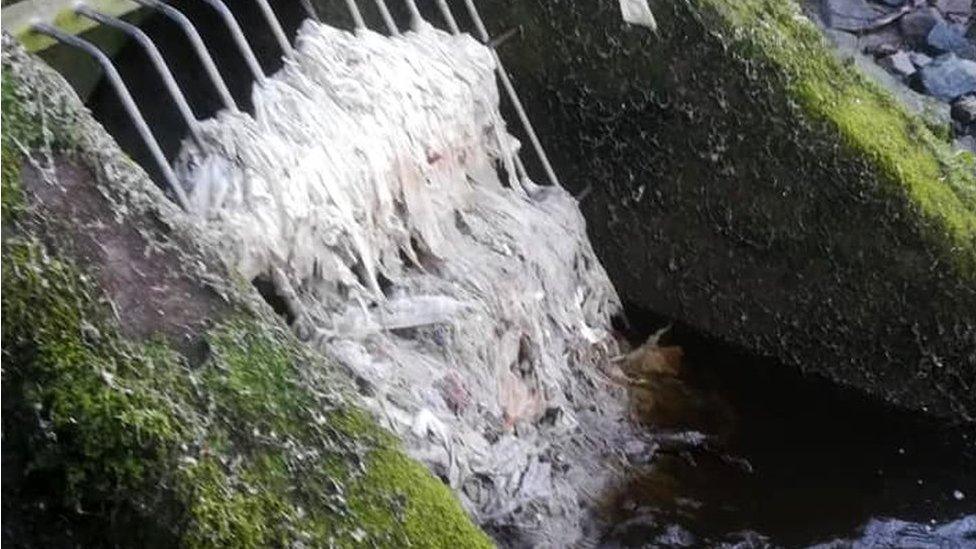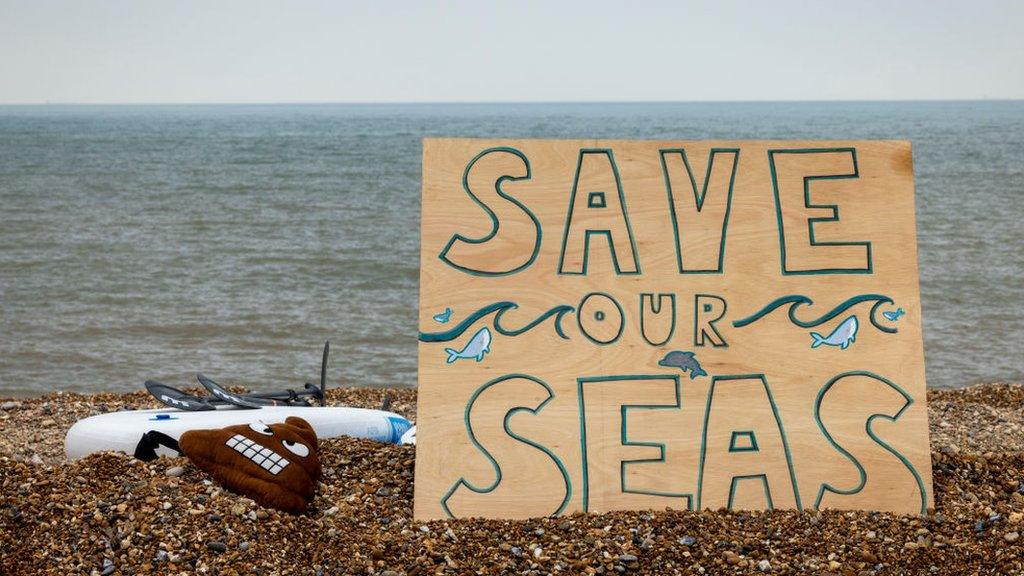Scotland's river sewage must be more closely monitored - charity
- Published
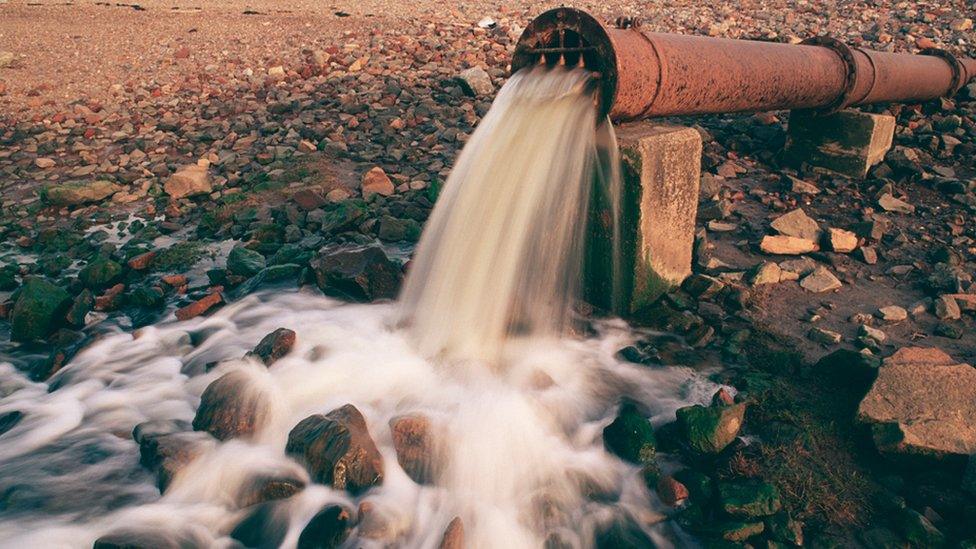
Scotland's sewage network must be more closely monitored to see how much is being discharged into the sea, the UK's leading ocean charity has said.
The Marine Conservation Society (MCS) says raw sewage was known to have been flushed into rivers and seas for 113,000 hours last year.
But it believes the true figure is far higher, as less than 4% of storm overflows are checked for spills.
Scottish Water has pledged to introduce more than 1,000 new monitors by 2024.
The agency also insists the country's waterways "are in good health" and are among the cleanest in Europe.
Combined sewer overflows, external (CSOs) are designed to only occasionally discharge excess wastewater into the sea and rivers.
But analysis by the MCS suggests each of the 123 monitored overflows - out of a total of 3,617 - dumped raw sewage 114 times in 2022.
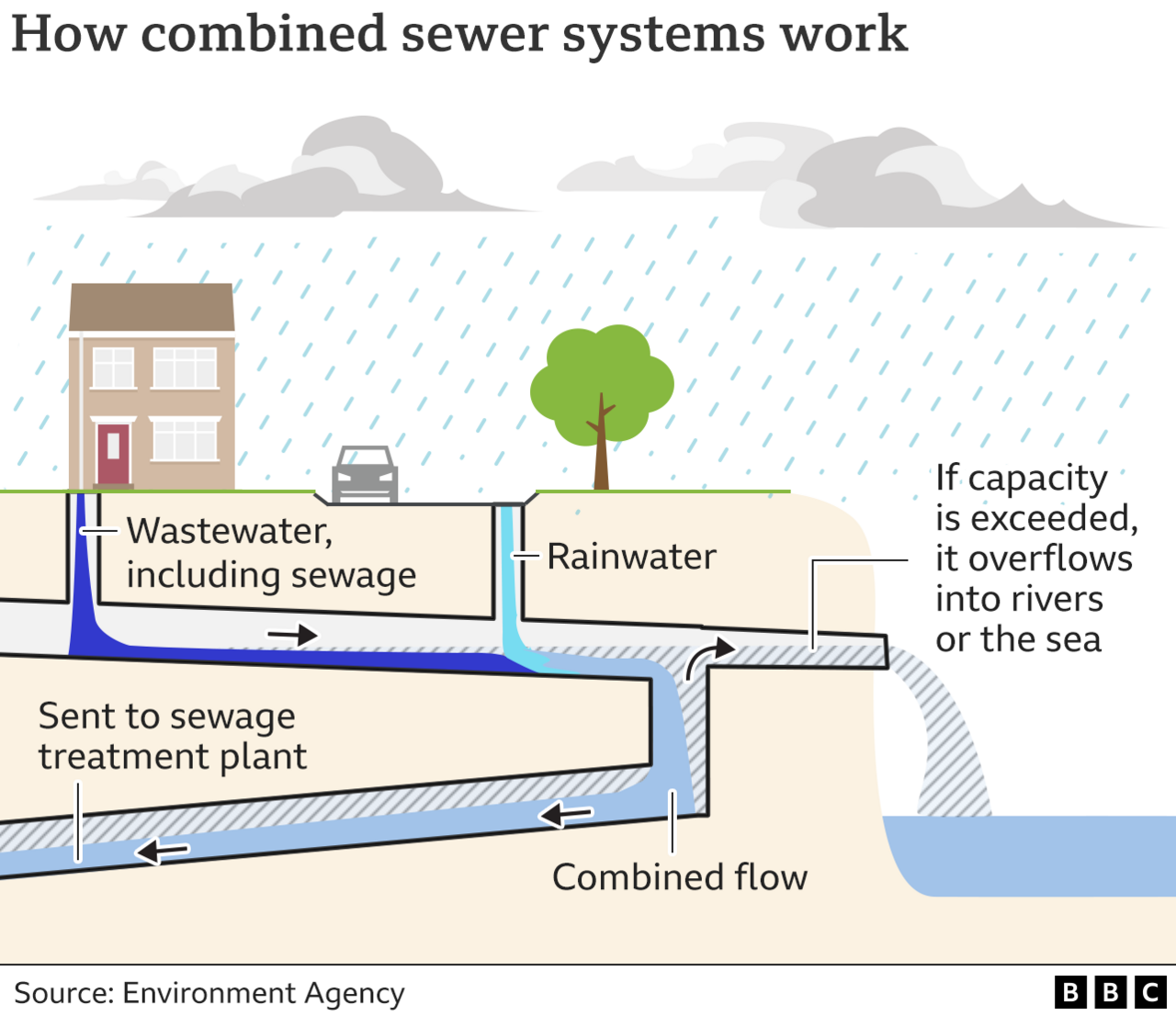
The charity also claims untreated waste was released into waters within 1km of areas designated for marine nature conservation for more than 20,000 hours.
In addition, the MCS found less than 2% of storm overflows within the same distance of designated bathing waters - four out of 177 - are monitored, yet they released sewage for more than 600 hours in 2022.
It has now called on the Scottish government to force Scottish Water to monitor and report on all discharges from storm overflows by 2026 at the latest.
And it wants to see "progressive spill reduction targets" to tackle the problem.
Sewage pollution
Untreated sewage contains bacteria such as E.coli and viruses like hepatitis, external, that can be harmful to animals and humans.
Swimming in water where untreated sewage is discharged can lead to serious illnesses such as stomach bugs, which may cause diarrhoea and vomiting, as well as respiratory, skin, ear and eye infections., external
Wildlife including fish and insects can also experience kidney issues and die from sewage pollution., external
Laura Foster, head of clean seas at the MSC, said the "tiny snapshot of data" supplied by Scottish Water and the Scottish Environment Protection Agency (Sepa) "paints a terrible picture of the situation".
She said: "For thousands of hours each year, untreated sewage is being released straight into Scotland's seas.
"This includes into designated bathing sites as well as marine protected areas which have been specifically recognised for their environmental importance.
"The Scottish government needs to set spill reduction targets to tackle sewage pollution, for the sake of marine life, people and planet."
The MSC's analysis comes a year after volunteers from the charity recorded and removed more than 35,000 sewage-related items from Scottish beaches.
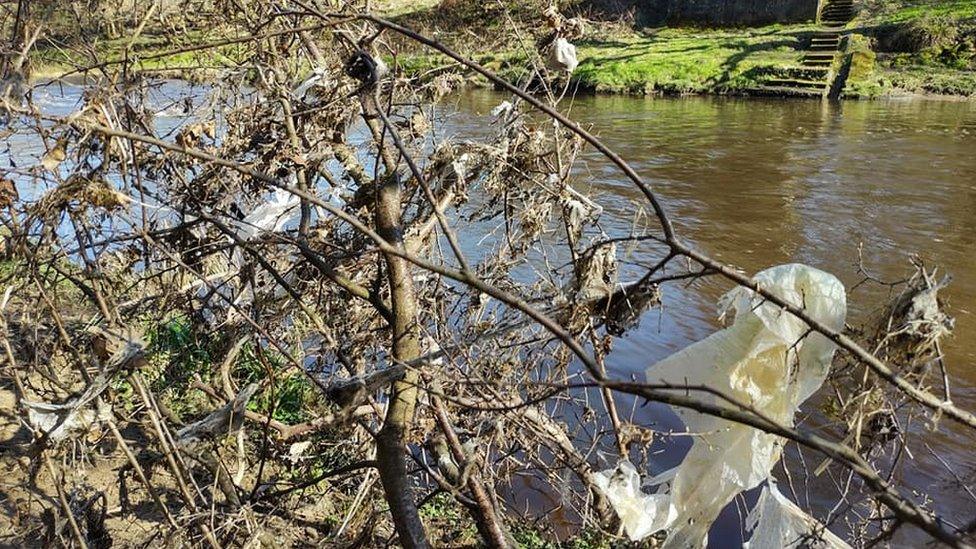
A Scottish Water spokesperson insisted the majority of Scotland's waterways are among the best quality in Europe, and said it was incorrect to term all discharges from storm overflows as sewage spills.
A spokesperson said. "The toilet sewage element of the water that spills is less than 1% of the total volume.
"What is spilled is largely rainwater. But the overflows that spill are needed so that water doesn't back up into homes, streets, business and communities.
"These overflows represent huge volumes of rainwater being safely transferred away from homes and businesses and back safely to the environment to minimise the impacts of extreme weather."
Extra monitors
Nathan Critchlow-Watton, head of water and planning at Sepa said: "Scotland's water quality is at its highest level ever, with 87% of our water environment rated as good or better. This year, Scotland also has a record-breaking number of bathing waters rated as excellent."
He added: "Scottish Water have committed to installing monitors on every CSO discharging to a Bathing or Shellfish Water by the end of 2024, with near real-time monitoring published for all these monitored CSOs by the end 2024. Sepa will ensure this commitment is delivered."
On Thursday, Scottish Liberal Democrat leader Alex Cole-Hamilton challenged the first minister in parliament over sewage discharges in Scotland's waterways.
He called on the government to introduce the first legally-binding targets to tackle sewage dumps.
Mr Cole-Hamilton said: "The problem for the first minister is that despite the money he has identified for extra monitors, 70% of all dumping pipes would still go unobserved.
"Whereas, in England, every single pipe is due to be monitored by the end of this year. When will we catch up?"
He added: "Look at what we've discovered in the last few weeks. Human waste dumped around best-loved beaches, wetlands of international importance and special protection areas, from Shetland to the Clyde."
Mr Yousaf said combined sewage overflows were integral to ensure sewers do not back up and cause flooding across the country.
He confirmed Scottish Water had pledged to introduce more than 1,000 storm drain monitors by the end of next year.
The first minister insisted there was already comprehensive monitoring and that Scotland's water quality was very good.
Related topics
- Published3 August 2021
